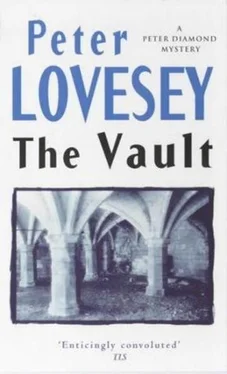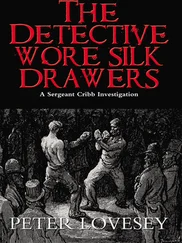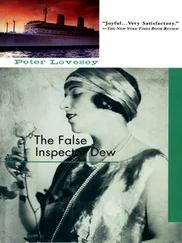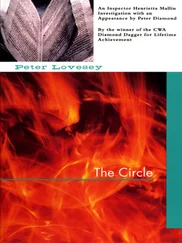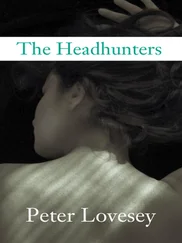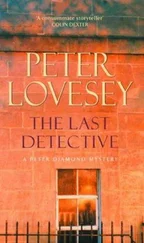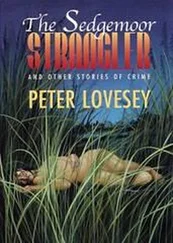"Not everything."
"Come again." He turned to the speaker and found himself facing Ingeborg.
"You told us the skull is female. What about the hands?"
"Can't say."
"Won't the forensic lab be able to tell you?"
"It's unlikely. If they turn out to be large hands, the supposition is that they belonged to a male, but it's only guesswork."
"So what's the next step, Mr Diamond? If the lab can't tell you much more, where do you go from here?"
"We find out who had access to the vault fifteen to twenty years ago."
"And who went missing?"
She was still on about the postgraduate woman. "Of course. It's under investigation. For your information, about a hundred and fifty thousand people go missing every year. Nationally, I mean."
Someone else said, "You don't sound very confident of a result, Superintendent."
"Would you be?" He turned to Halliwell. "Let's go."
Outside, a messenger from upstairs told him he was wanted immediately by the Assistant Chief Constable.
ALONE IN the carpeted office upstairs. That huge mahogany desk. A group photo taken at Bramshill, the police training college for senior officers. Another of Georgina in uniform shaking the hand of Margaret Thatcher. A shelf of books, mainly reports by the look of them. The saving grace was the corner cupboard used by the previous ACC for his supply of whisky.
He heard her quick footsteps along the corridor. "The Police Authority like to be kept informed of developments," she told him importantly as she swept in.
"Councillor Sturr?"
"How do you know I was with John Sturr?"
"He parked his Mercedes next to my old heap in the staff car park."
"Sit down, then." No offer of a scotch. Not so much as a lemonade. "How did the press behave?"
"They didn't swallow me alive, ma'am," said Diamond. "But it was crowded in there. I had to shout. Makes your throat go dry."
She didn't even glance at the drinks cupboard. "What did they want to know?"
"They're only interested in the Frankenstein stuff. Frankenstein! The things you get thrown at you in this job."
"Did you know of this connection?"
"Not until this afternoon. I know Jane Austen lived here, and Beau Nash and General Wolfe. Frankenstein, no."
"To be accurate," the ACC corrected him, "it was the creator of Frankenstein, Mary Shelley."
"You'd think it was the monster himself, the way they were going on about body parts."
"She was here only a few months, but it appears she wrote most of the book at the house in Abbey Churchyard. There's no question that she lived there. In fact, her personal copy of Milton's poems was doing the rounds of the antiquarian book trade this very morning, and it's inscribed with her initials and the Abbey Churchyard address." Georgina threw this in casually, apparently to let him know she had her finger on the Bath pulse. "We're going to be in the spotlight shortly, I'm afraid."
"Going to be?" he said with irony.
"This is why I asked you to see me. You'd better disregard the conversation we had earlier, about scaling down the investigation. We're coming under public scrutiny."
Diamond frowned. "What are you saying, ma'am? That we have to put on a show for the media?"
"I didn't put it quite so crudely, but that's the gist of it, yes."
He felt a rush of blood. He was about to say something insubordinate. If Julie Hargreaves had been here, she would have put a restraining hand on his arm. But she was not. "I'm a copper, not a circus acrobat."
The ACC said in a voice as dry as the scotch she didn't dispense, "What are you implying?"
For the first time in their dealings, Diamond allowed the ACC's gender to influence his conduct; if she had been a man, he would given her a mouthful. "I'm not implying anything, ma'am. I speak straight. I work for the police. I obey orders, but I expect them to be based on policing priorities."
The features across the desk tensed and turned paler. "Policing priorities can include public relations, you know."
"So that's it," said Diamond. "This is window-dressing."
Her eyes flashed. "If you ever rise above your present rank, Superintendent, you may come to appreciate that window-dressing, as you call it, is a necessary part of the job. As you know, I'm giving a party tonight-in my own time and at my own expense-and several members of the Police Authority will be there. I don't do it out of anything else than a sense of duty. Some of the people I've invited would not be my choice of guests-I don't mean you-but one does it just the same, to show the flag."
"You're telling me to show the flag?"
"There's more to it than that. What was found in the vault requires investigation. You and your team have no other inquiry under way at the moment. I agree with you that this one presents difficulties, but that's no reason to walk away from it."
"This isn't the only unsolved suspicious death in the past twenty years."
"It's the most recent to come to light. Who do you have working on it at the moment?"
"Apart from the diggers? DI Halliwell and a couple of civilians."
"Step it up, then. Get more people onto it. We ought to establish the identity of the victim."
"Oh, yes?"
"And another thing, Mr Diamond…"
"Yes, ma'am?"
"I don't like the way you've conducted yourself in the last few minutes, don't care for it one bit. If you and I are going to continue to work together, I suggest you do some window-dressing of your own. This confrontational style of yours, I won't put up with it. Understood?"
After a pause: "Understood, ma'am."
THE NEXT stage in Joe Dougan's odyssey brought him from The Brains Surgery to Noble and Nude. Peg Redbird, the owner of the most cluttered antique shop Joe had ever seen, was out doing a valuation when he arrived. He asked her assistant, a talkative, red-haired man in a bow-tie, if the shop had been in existence for some time and was told Peg herself had opened it in 1975. Joe said he would wait for her. He was sure he could find plenty to interest him until she returned.
He went upstairs looking for books. Most antique shops have a small stock somewhere, and this was no exception. In a back room he found some stacked along the lid of an upright piano, but they were disappointing. Paperback detective stories of the nineteen-thirties, by the likes of Margery Allingham and Ellery Queen. Joe didn't have time for fictional mysteries. There were mysteries enough in English Literature to keep him occupied.
He looked at his watch. For this, Donna would exact compensation. Champagne with dinner tonight. Or a visit to a stately home tomorrow. Or a new hat. Or all of those. He hoped the owner of this place would not keep him waiting much longer. But there was no question that he would give up the chase. People said there was an obsessive side to his personality ("people" meant Donna more than anyone else; she was obsessive in describing him as obsessive). Well, he had to admit that once started on something he liked to see it through to a conclusion, regardless of the time expended. But "obsessive" was not a word he would have used about himself. He preferred "tenacious".
Another long interval elapsed before he heard voices downstairs. Certainly one was a woman's. Hopeful that the wait was over, he picked his way through an obstacle-course of vases, ancient sewing-machines and wind-up gramophones and started down the stairs.
It is one of those universal truths that people in the antiques trade have loud voices, and these carried up to him.
The female voice was saying, "Darling, I had him on toast. Well, he was ripping off the taxman, and we both knew it, so he couldn't expect top dollar, could he?"
The man asked, "But did he have a sense of what it was worth?"
"There's one born every minute. You'll see when you pick up the goods. The chaise longue is an eyesore, but it will sell, and the rest of the stuff is very collectable indeed. You're going to love the Coalport. And Ellis…"
Читать дальше
